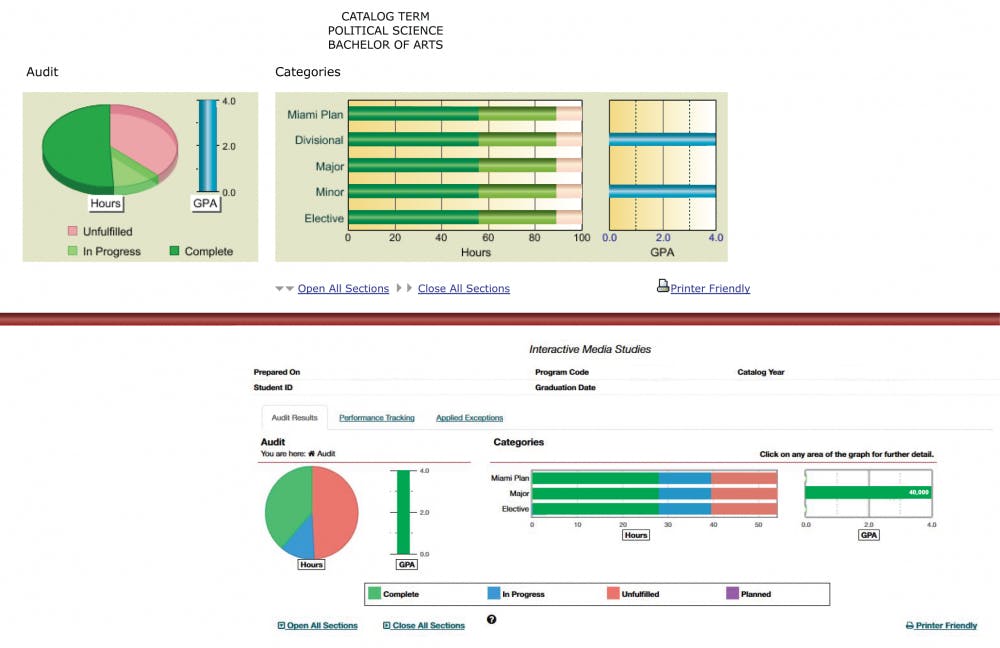In 1983, Miami University created DARs, the Degree Audit Reporting System, to help students keep track of the classes they needed to take in order to graduate. The university developed the technology and began licensing software to other colleges two years later.
Now, 30 years later, the DAR system underwent a massive upgrade over J-term.
During January Miami switched to uAchieve, the upgraded version of the DARs. The switch was necessary for compatibility with BannerWeb's software which was also upgraded from BannerWeb 8 to BannerWeb 9.
BannerWeb is a product of Ellucian, a higher education software company. This new version eliminates browser compatibility problems and allows for attendance tracking, which saves time for the financial aid office and the office of the registrar.
uAchieve is a more current software platform for the degree audit system. The cost of both upgrades comes from Miami's current maintenance fees.
"The new web interface allows for a better user experience," Carol Jones, senior associate registrar, wrote in an email to The Student.
The uAchieve web client, an application that helps a web browser support specific functions from a site, adds Performance Tracking and Applied Exceptions tabs to the DARs. Performance tracking displays every course a student has received credit for, along with the number of credit hours and the grade achieved for each. Applied Exceptions shows any course exceptions a student has been granted. The system aims to be simpler and easier to read.
Students have reported some difficulties as they adjust to the upgraded system. Some have run into improperly calculated graduation requirements and found third majors tricky to locate.
"I definitely don't like it as much as the old system," said senior Delayna Shulak. "It still doesn't fix the problem of your thematic sequence always showing up incomplete if you choose to complete a minor or additional major instead."
"I came back from study abroad and checked my DARs a few days ago and was surprised," senior Myles McNeal. "The system looks better, I wish we had had it since I started, but I had to go into CAS advising and make sure my political science requirements had transferred over properly because they weren't originally in the system with the right course number."
"Our office is working through the records of students with more than two majors and getting the majors back on the records," Jones wrote. "We ask that the students be patient, as there is quite a bit to review."
"We are working on students closest to graduation first and expect to have everything reviewed within the semester," she added.
Enjoy what you're reading?
Signup for our newsletter
This is far from the first time DARs has undergone changes.
In 2008, DARs became known as redLantern, a nonprofit department of the university. The three components of DARS also underwent name changes. DARwin, the actual degree audit that lists requirements (and the one that students are probably most familiar with), became u.achieve. CAS (Course Applicability System), the course transfer system, became u.select. DCP (Degree Completion Planner), a tool that allows students to develop a multi-year plan for graduation, became u.direct.
Later that same year, Miami transferred redLantern to the technology company CollegeSource. CollegeSource supports software that aids universities in mapping out students' academic careers -- for example, their major or majors, requirements of each major and how course requirements may overlap between majors, internship credit and any special degree requirements like graduating with honors.
Since then, CollegeSource has supplied the uAchieve software to colleges and universities across the country, Miami included.




